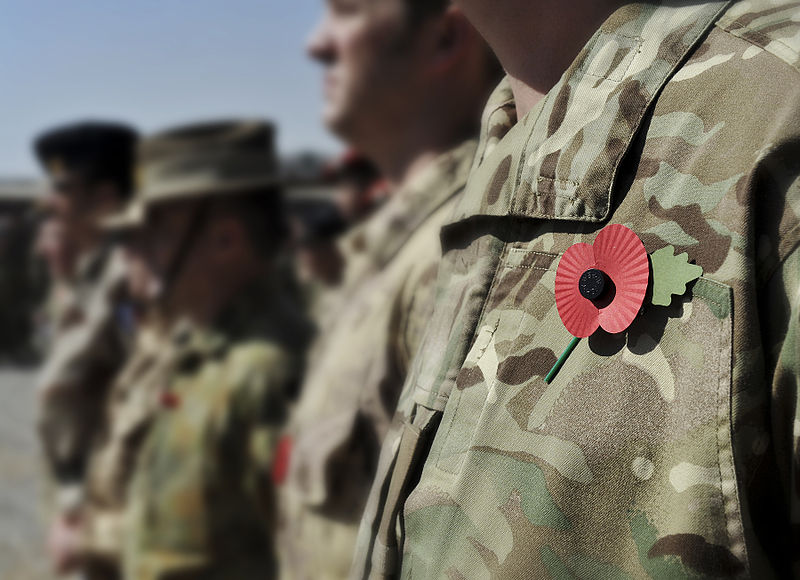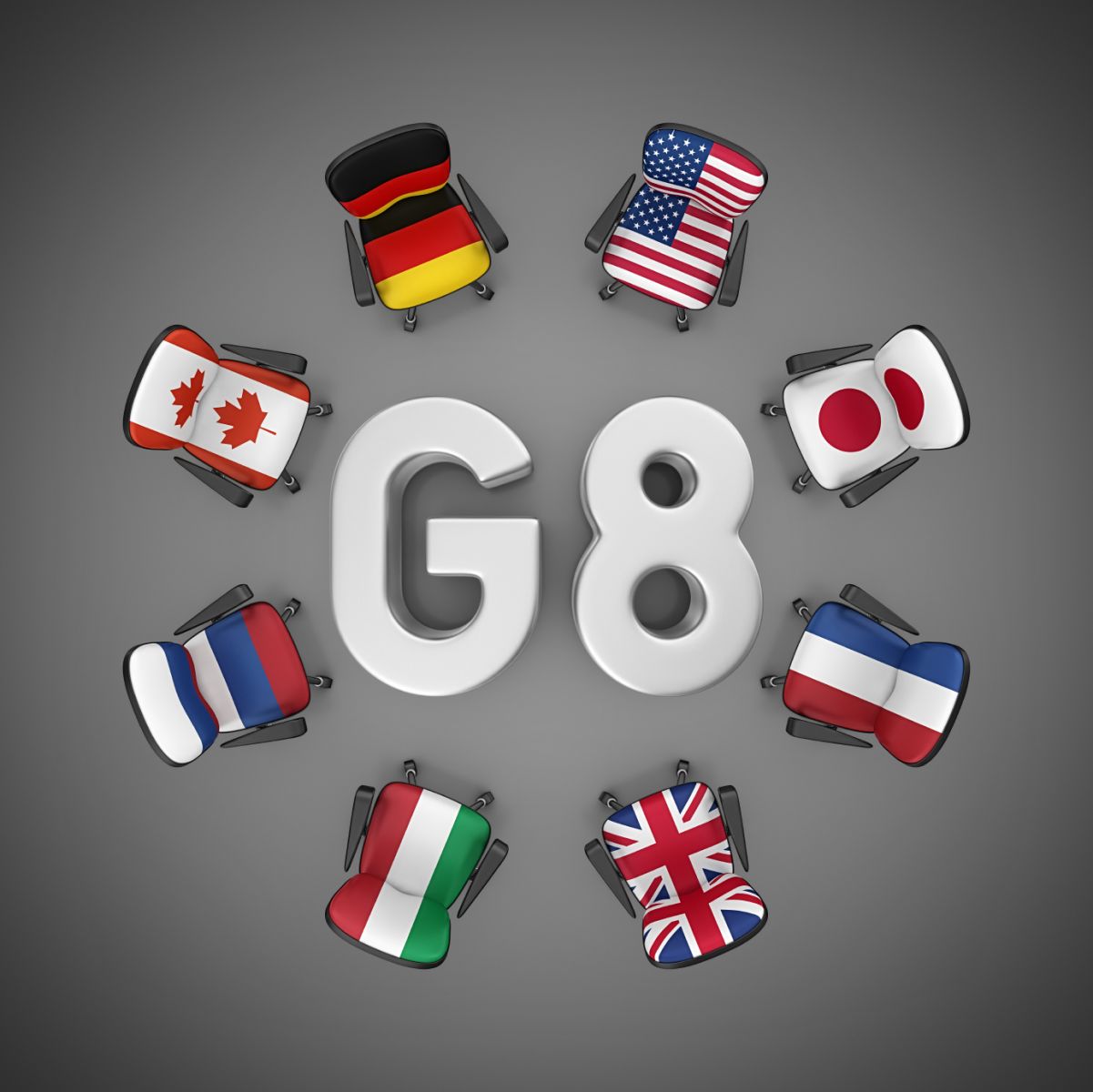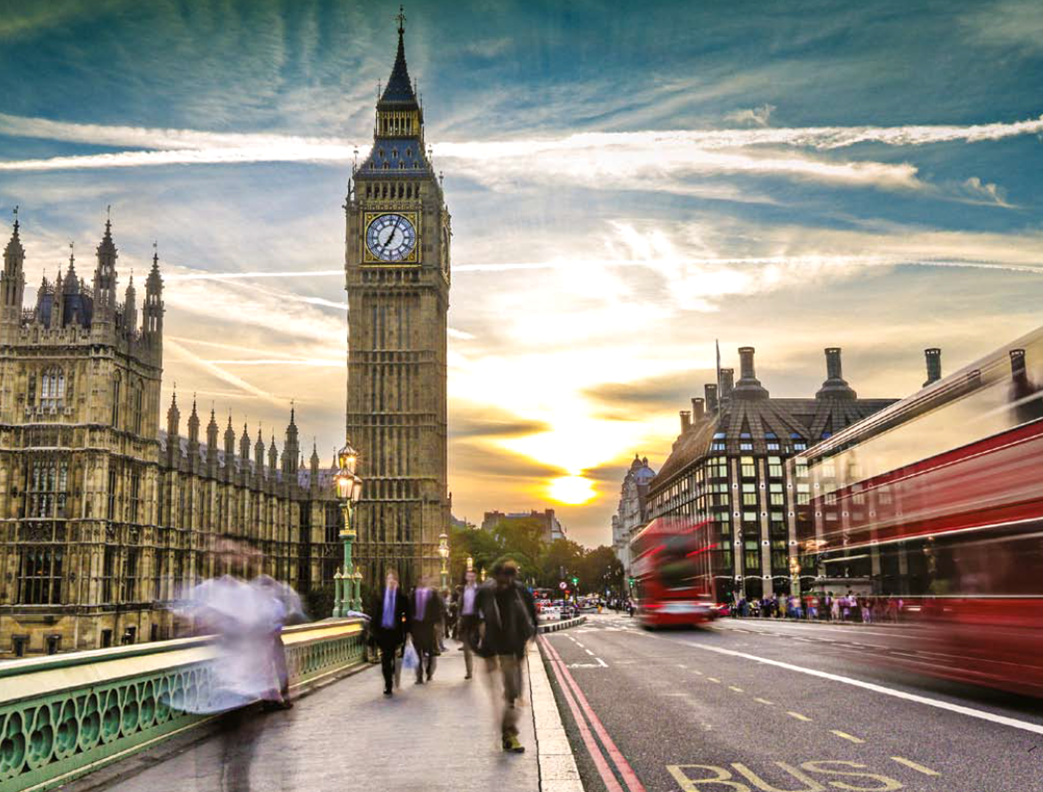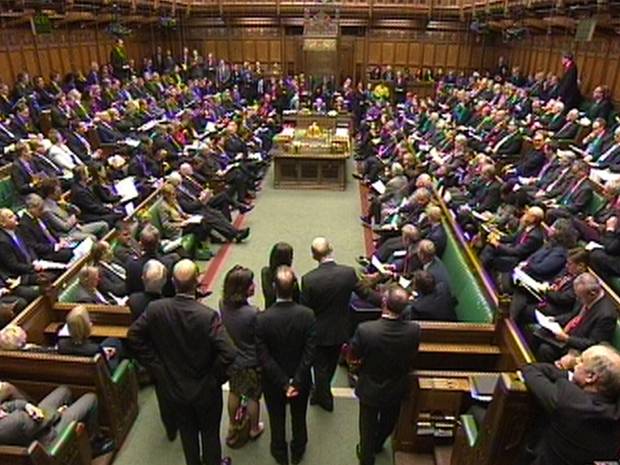Remembrance Day Commemorates Soldiers
The Queen leads veterans, politicians and religious figures in honouring members of the Armed Forces killed in conflict.
Remembrance Day services have been held around the UK to commemorate those who served the country in two world wars and in more recent conflicts.
The Queen laid the first wreath at the Cenotaph on Whitehall in central London to commemorate all those who have made the ultimate sacrifice, bowing her head after paying her respects.
Millions of people across the nation were quiet for the traditional two-minute silence.
Senior royals, including Second World War veteran the Duke of Edinburgh, Prince Harry and the Duke of Cambridge – with wife Kate watching from a nearby balcony – joined the monarch and politicians, military leaders, veterans and serving personnel in laying wreaths of poppies at the monument.Prime Minister David Cameron, Deputy Prime Minister Nick Clegg and Labour leader Ed Miliband all placed wreaths at the Cenotaph.
Thousands of veterans and civilians then marched past the monument to commemorate the fallen.
Troops in Afghanistan were joined by the Duke of York and Defence Secretary Philip Hammond, who both laid wreaths during a service held at Camp Bastion in Helmand Province.
Speaking from Afghanistan, Mr Hammond told Sky’s Murnaghan programme the public must remember the sacrifices made by the Armed Forces.
He said: “Even when a conflict is over the consequences of that conflict will remain with us.
“For every two people that have died in the Afghan conflict, there’s another one who has come back to the UK missing limbs, who has to make a life for many, many years to come in the civilian community and we need the public to remember them as well as to remember those who fell.”
Since last Remembrance Sunday, 10 British Forces personnel have died on operations. The Ministry of Defence has included in that list Fusilier Lee Rigby, who was killed in Woolwich in May.
Former Royal Navy able seaman Eddie Linton was one of those remembering fallen colleagues at the cenotaph in his home town of Newport.
As a young man he was one of only 20 people to survive when the frigate HMS Mourne was torpedoed off the beaches of Normandy in 1944.
Now aged 87 he says he will never forget the 110 fellow crew members who died that day.
“We spotted a U-boat and went to action stations,” he said.
“We decided to do a hedgehog attack (anti-submarine attack) but before we could do the attack the U-boat hit us in the magazine.
“I was talking to my mate, Teddy Boy, when it happened and both of us went up in the air. I never seen him no more.
“I hopped over the side and it seemed like an hour before I managed to reach the surface. Later on, a Liberator plant flew over and dropped us a big rubber dinghy and a few of us managed to scramble onto it and we floated around for a couple of hours before we were rescued.
“Floating around in the dark, I was more concerned for my family. Only 20 of us survived. I do still think about it now on the odd occasion.”
Seven decades after D-Day, Captain Ibrar Ali is one of more than 600 UK servicemen and women who have been seriously injured in Afghanistan alone in the past 10 years.
He was awarded the military cross for continuing to command his patrol after it was hit by a roadside bomb in 2007 despite being so badly injured he lost his right arm below the elbow.
Now in training for a charity expedition to the South Pole organised by Walking With The Wounded, he says he will be thinking of those who died and those whose lives have changed forever.
“Myself and other injured service personnel are very aware of the thoughts of the British public during Remembrance Day,” he said.
“It’s about thinking about the guys who were close to me in the numerous tours I’ve been out on, but also the families of those that have fallen, and the injured guys that are in a worse position than myself.”
Former Army Corporal Simon Brown works for Blind Veterans UK, a charity that supports visually impaired ex-service personnel.
He was shot while carrying out a rescue mission and has suffered from post-traumatic stress disorder after losing one eye and 80% of his vision in the other.
He believes the services held on Remembrance Sunday are a time to reflect on everyone affected by war and conflict.
“The remit of Armistice Day is to remember those who suffered from war and obviously there’s a large percentage of young men and women who have been through really traumatic experiences and are suffering quite badly for it,” he said.










